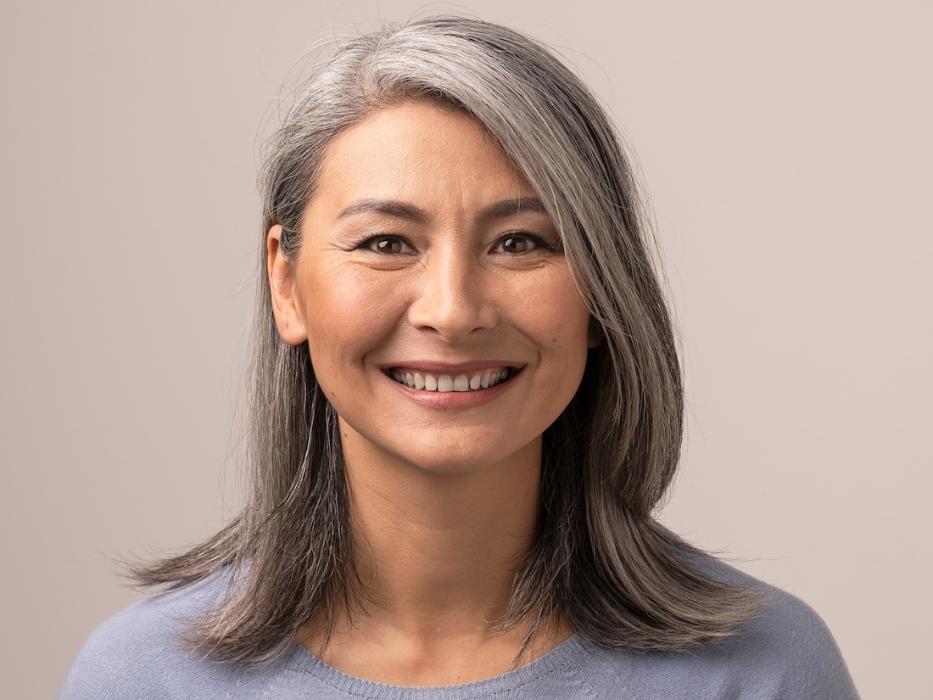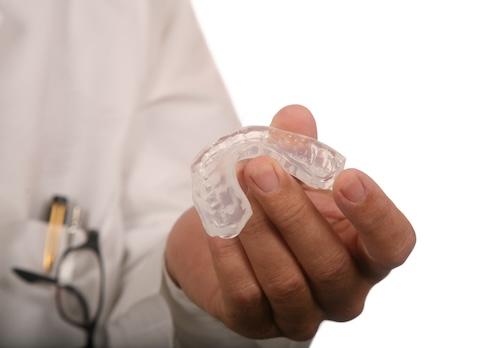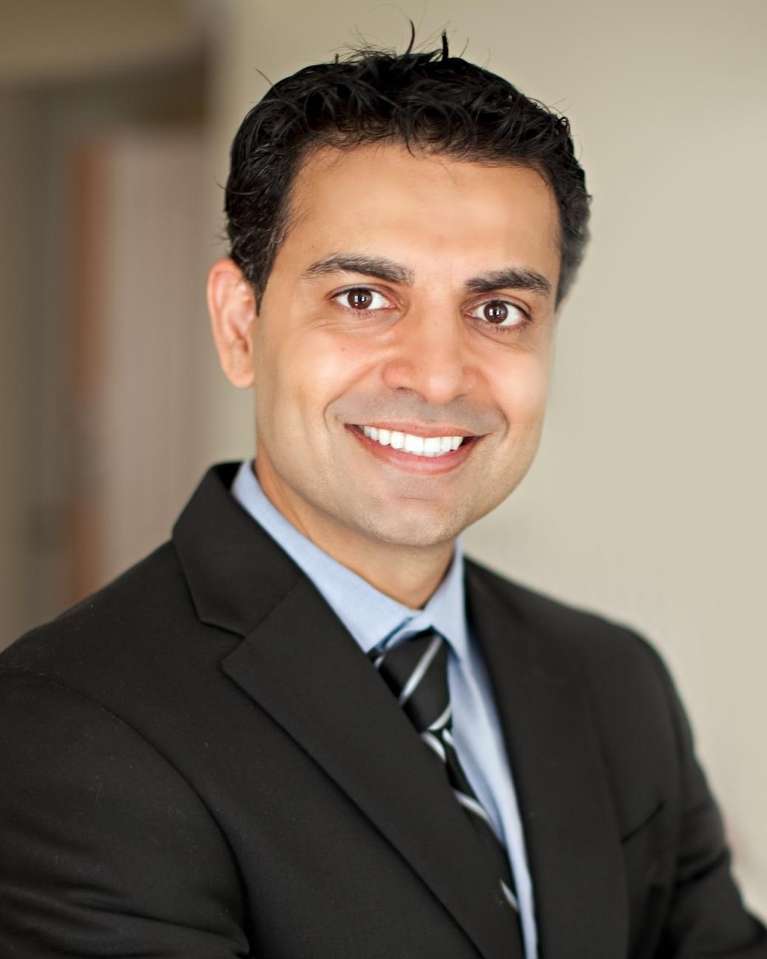
TMJ and Bruxism Treatment in Burke, VA
What Is Bruxism?
If you wake up with sensitive teeth, headaches, or jaw pain, you might be a victim of the nightly grind, also known as bruxism. Bruxism is the grinding and clenching of teeth. While it can occur during the day, people most often find they experience it at night in their sleep.
Teeth clenching and grinding can interrupt normal sleep patterns, and who needs that? It’s hard enough to get a good night’s sleep in today’s busy world and have so much on our minds.
When you come to Burke Dental Center for your routine checkup, Dr. Khan will likely ask you about your sleep patterns and what you notice while he looks for the telltale signs of teeth grinding.
- Bite marks along the insides of cheeks
- Worn, cracked, or chipped teeth
- Gum recession
- Malocclusion (bad bite)
- Overly prominent jaw muscles (boxy jaw)
Left untreated, bruxism symptoms can worsen.
What Is TMJ Disorder?
Your TMJ (temporomandibular joints) are the hinge-like joints that move your jaw up and down and side to side. TMJ disorder broadly refers to problems with the jaw joint and muscles. Sometimes, the cause of TMJ disorders (TMJD) can be pinpointed:
- Trauma
- Bruxism
- Occlusal disease (malocclusion)
- Developmental issues
- Tooth loss
- Orthodontic relapse
But other times, the cause may be unknown. Either way, our compassionate team is here to help you get the relief you need.
Our bodies are intricately connected. TMJD symptoms vary widely from person to person but can include the following:
- Clicking, popping, or locking of the jaw
- Muscle pain and fatigue
- Tinnitus (ringing in the ears)
- Tooth pain and sensitivity
- Jaw pain and inflammation
- Face, neck, shoulder, or back pain
- Headaches and migraines
- Disordered sleep
- Sleep apnea
- Teeth chips, wear, or fractures
- Bony tori (growths) under the tongue
Some people can reduce symptoms by making specific lifestyle adjustments.
- Stress management
- Reduced caffeine, tobacco, drug, or alcohol use
- Massage
- Mindful meditation
More often than not, however, TMJD requires professional intervention.
Treatment for Bruxism and TMJ Dysfunction
 Bruxism and TMJ pain have similar treatment modalities. At Burke Dental Center, we use nightguards and occlusal splints based on your unique needs.
Bruxism and TMJ pain have similar treatment modalities. At Burke Dental Center, we use nightguards and occlusal splints based on your unique needs.
Unlike boil-and-bite mouthguards, professional nightguards and splints are made of firm acrylic that Dr. Khan can adjust to your unique bite. Custom splints for bruxism and TMJD have a snug fit that will stay put when you need it most—while you sleep.
Nightguards and splints place a barrier between your upper and lower teeth to minimize the damage caused by clenching and grinding your teeth. They also have the additional benefit of helping angry jaw muscles relax and supporting the jaw joints to rest in a comfortable position.
What Is Occlusal Disease?
Occlusal disease refers to malocclusion or a bad bite. This can occur due to developmental issues such as the upper and lower jaw growing at different rates or from problems that occur later in life.
- Tooth loss
- Misaligned teeth
- An imbalanced bite
- Bruxism
When teeth do not come together correctly, some teeth absorb more of the bite force than others, which can mean a breakdown of your teeth and smile. This, in turn, leads to more severe malocclusion, and the cycle continues.
Dr. Khan will discuss your jaw health with you at your comprehensive exam so that you can enjoy improved comfort, a healthier smile, and improved sleep.
Some treatment options for occlusal disease include:
- Splint therapy
- Orthodontics
- Occlusal equilibration (adjusting the bite)
- Replacement of missing teeth
- Crowns or other restorations
Bruxism and Jaw Pain Treatment in Burke, VA
To learn more about how Dr. Khan can relieve jaw pain and tooth-grinding symptoms, contact us at (703) 440-5075. We look forward to helping you achieve a healthy, comfortable smile.
Meet Our Dentist:

Dr. Nabeel Khan
Dr. Nabeel Khan has been voted "Top Dentist" in the Washingtonian, Virginia Living, and Northern Virginia Magazine, accolades awarded by the respect of colleagues and patient satisfaction surveys. He studied dentistry at the Medical College of Virginia, where he completed his dental school requirements in three years while simultaneously working part-time in the hotel industry, completing an externship at a pediatric dentist's office, and volunteering at the Northern Virginia Dental Clinic in Falls Church.
Dr. Khan believes it is vital to keep up with new and advanced dental technology to provide his patients with ...
It is that kindness and care that make his practice special.

You know you have a good dentist when you look forward to the visit. Dr. Khan and his professional, friendly and capable team have taken care of my teeth for years. From routine cleanings to cavities and cosmetic work, their comprehensive knowledge of dentistry has given me healthy teeth and gums with a sunny smile.
Dr. Khan is thorough; using state-of-the-art equipment, he will clearly explain the results of your exam and talk you through next-steps. And he is dedicated!
I had a painful tooth infection on a weekend and contacted Dr. Khan. He called me back immediately and prescribed medicine until I could get to the office the next day. It is that kindness and care that make his practice special.
-Tracy K.